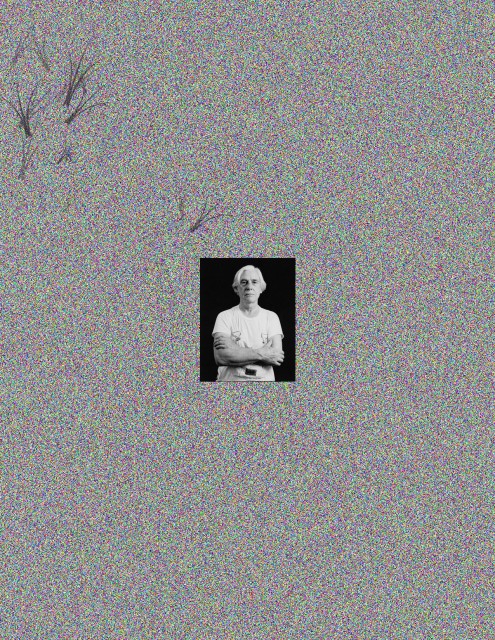1. Once …
My dad was diagnosed Alzheimer’s disease in about 2002. He was about 75 years old then. (It’s easy to remember the date, because my siblings and I were planning a surprise 50th wedding anniversary for my parents.) My mother told us about the diagnosis a few days before the party (the surprise had been given away a week earlier). We reeled, but the party, a half-year in the planning, went on. On the day, my dad struggled to remember who a few of the guests were, but otherwise had a great time. He and my mother danced. But the disease hovered over the day like a malevolent cloud.
In hindsight, we think the disease might have started some time earlier. My dad had retired from his medical practice a several years earlier, but kept his license (he could still write prescriptions, treat folks in the neighborhood when called upon). Then, suddenly, he gave it up. He said it was about the malpractice insurance, but we wondered. Around that same time, he also gave up his work as a docent at the medical museum at Walter Reed Army Medical Hospital. It is a great museum — full of interesting and odd facts and objects that date to back before the Civil War – and I know my dad had been proud to be there. He was a great docent, too – funny, smart, patient, thoughtful. I wish now I’d seen him do his tour more than once. Once. I always meant to go back and see him do the tour again, but I never got around to it. Once. What else could I possibly have been doing that was so important? 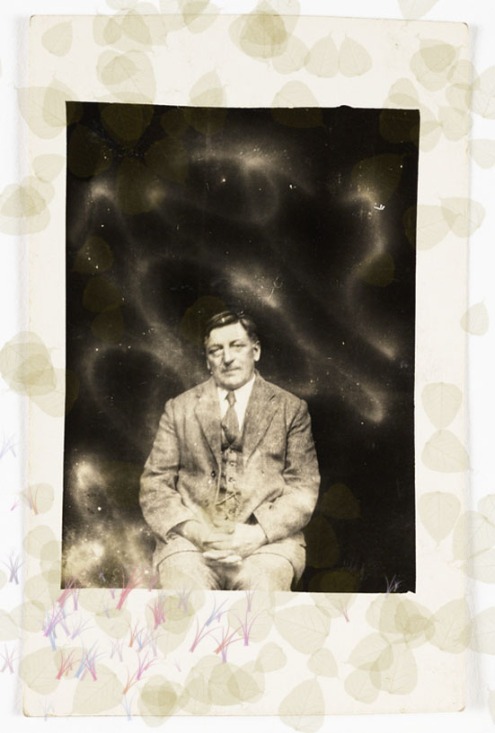 This is not my dad, but it could be one of his uncles. My grandfather, his father, emigrated to the United States from Sicily around the turn of the last century. He married my grandmother, who was born in New York City, but whose own father had emigrated some 20 years earlier. They lived in Manhattan’s Little Italy, first on Christie Street, then Forsythe, then Delancey. My grandmother had been very poor growing up – there’d always been enough to eat – they were Italian, after all, but sometimes in winter, she said, snow would get in under the windows, and sit there unmelted for days, because that’s how cold it was in the apartment. To this day, one of my dad’s favorite film’s is Francis Ford Coppola’s “The Godfather” tryptych. He especially likes “The Godfather III,” because of its careful depiction of life in Little Italy, with all its hardships and dramas, in the early 1900s.
This is not my dad, but it could be one of his uncles. My grandfather, his father, emigrated to the United States from Sicily around the turn of the last century. He married my grandmother, who was born in New York City, but whose own father had emigrated some 20 years earlier. They lived in Manhattan’s Little Italy, first on Christie Street, then Forsythe, then Delancey. My grandmother had been very poor growing up – there’d always been enough to eat – they were Italian, after all, but sometimes in winter, she said, snow would get in under the windows, and sit there unmelted for days, because that’s how cold it was in the apartment. To this day, one of my dad’s favorite film’s is Francis Ford Coppola’s “The Godfather” tryptych. He especially likes “The Godfather III,” because of its careful depiction of life in Little Italy, with all its hardships and dramas, in the early 1900s.
2. This blog …
… and is intended as a simple tool and resource for anyone who may be struggling to find a way to think about this devastating disease. This post, and the 23 that follow, are my first installments. I will update (from the top) in future. The post contains links, photos and quotations from books, radio interviews and other sources that I have found helpful. There have been many memoirs published in recent years by the caregivers of Alzheimer’s patients, and in some cases, by Alzheimer’s sufferers themselves. I have read a handful, but found each one helpful. Each is another patch on the quilt of my understanding .
.
3. My dad …
… is a pretty dignified and private person. He is quiet. He used to come home from his office after a day of interaction with dozens of screaming, wriggling kids (he was a pediatrician) and, seeing our wild bunch up to the same tricks, often retreated to his study until dinner. We were a pretty rambunctious crew, especially around dinner time, when my mother, cooking dinner, also had to get after us to do our chores, and deal with the mountains of laundry, and unpack endless bags of groceries, etc. So, as an adult, looking back, I can’t say I blame him for trying to extract a little peace and quiet from the day. (I don’t have any kids myself, and I can’t say I’ve ever spoken to him about any of this, but I’m pretty sure that’s what he was up to.) I used to go with him on Saturdays to work in his office – I put charts on the examining room doors, checked people in, put the throat culture plates in the incubator, stuff like that. It was pretty cool. Afterward, I would drive with him over to Providence Hospital, where he would do rounds. I usually sat in the car. Sometimes, after that, we would go over to the St. Anne’s Infant Home, which the Catholic Church operated as a home for unwed mothers. I didn’t even know what that meant, back then. There were a lot of nuns around, and they were all pretty impressed with my dad. I would have been, too, but I think I was too busy basking in the reflected glory. Sometimes, if it was a Sunday, and late, he would have WMAL, and Felix Grant’s jazz show, on the car radio. (He drove an Oldsmobile, and then he upgraded to a Town Car, and then, late in the game, a Mercedes. He always had neat cars – but early on, they were troublemakers. One, a little red Renault, had the door fall off. And another, a cream colored Corvair – unsafe at any speed – had other issues.
I can’t say I felt I knew my dad all that well — what he thought about things – growing up. That was how he’d been raised by his father, and that’s how he raised us. He was the dad, and there was a certain formality that he tried to enforce (though we tested it constantly). But even though he was something of a mystery at times, I always trusted him to be there, took his presence absolutely for granted. And he was the one we kids all went squalling to when things were really bad, and we needed a Solomon like decision on any particular thing. He was a ’50s Dad and we were ’70s kids.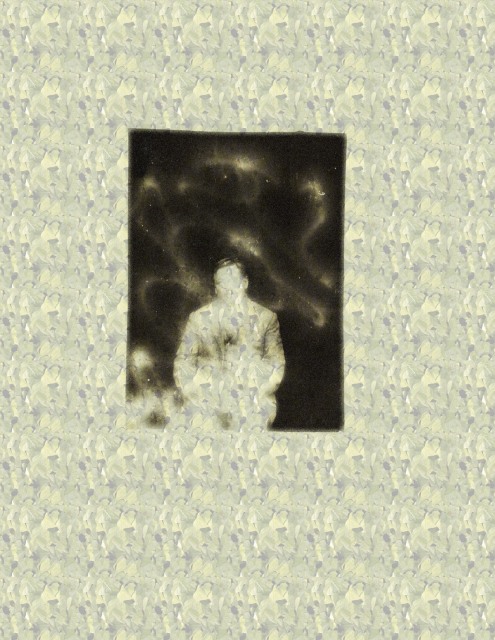
He has never spoken the word “Alzheimer’s” in conversation with any of his six children, my siblings, and he hasn’t used it but once with my mother. The most he’ll say, sometimes, is “My memory isn’t serving me too well these days.” And then he will smile, and look embarrassed and rueful. Sometimes I say, “That’s okay, dad,” in hopes of reassuring him, letting him know we understand, and we’re all going to be there for him and my mom. 
4. Silver Linings
It is hard to see any blessing or silver lining when it comes to Alzheimer’s disease. I don’t think there is one. Alzheimer’s disease just is, and that’s that. But I will say this: so far, I’ve had a chance to know my dad, and be with him, in a different, more focused way, than I ever had in the past. And I am grateful for that. Alzheimer’s does not spare its victims – it is always fatal – but it often works very slowly. My Dad is still here, and I am glad. 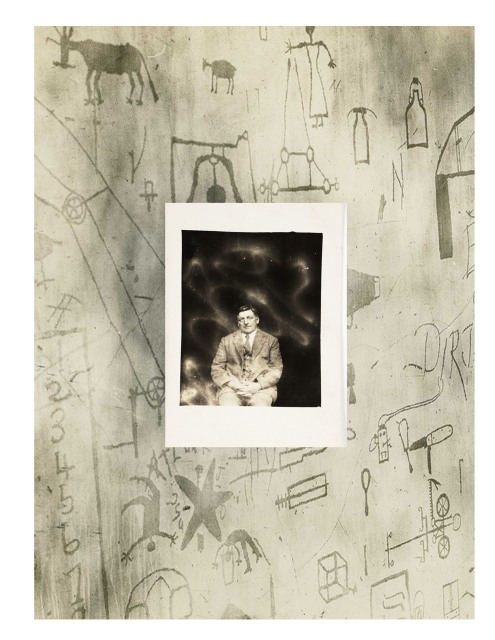
5. Some facts:
Alzheimer’s disease affects about 5 million Americans, and that number is expected to more than triple – to 16 million – by 2050. It is only one of the several dementias that afflict the elderly, and sometimes the not so elderly, but it is the most common. About 60 to 75 percent of all dementias are thought to be Alzheimer’s. There is no blood or chemical test to identify the disease. The diagnosis is made by verbal and written tests of cognition, and by observation. Right now, there is no cure. There are drugs that slow the disease’s progression, but none to reverse it. It is always fatal. Most patients die within six to nine years of diagnosis, but some live much longer — up to 20 years. 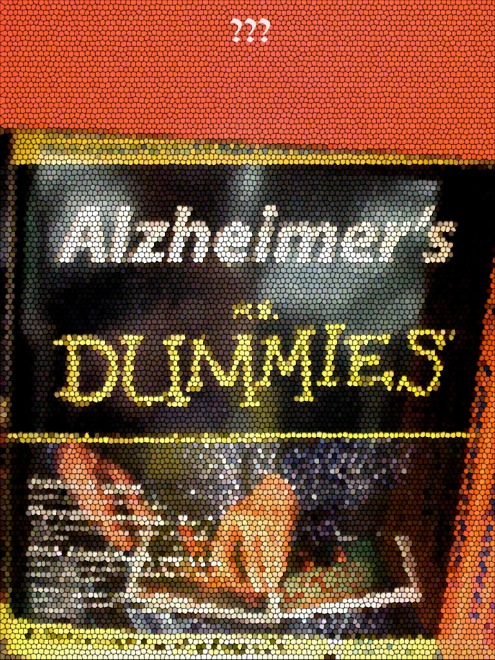
I found this photo of a book cover on Flickr. I think it must have been taken at a bookstore, right at shelf level. The caption accompanying the photo said, “This is so wrong.”
6. like kudzu …
The disease is named after the German physician who first described it in 1906. It occurs when the body, for reasons not yet understood, begins overproducing two types of proteins – beta amyloid and tau proteins. These sticky substances settle in between the nerve cells, and inside them, and interfere with and eventually block, communication between the brain’s nerve networks. When I think of these proteins, I think of silly string. Or kudzu. 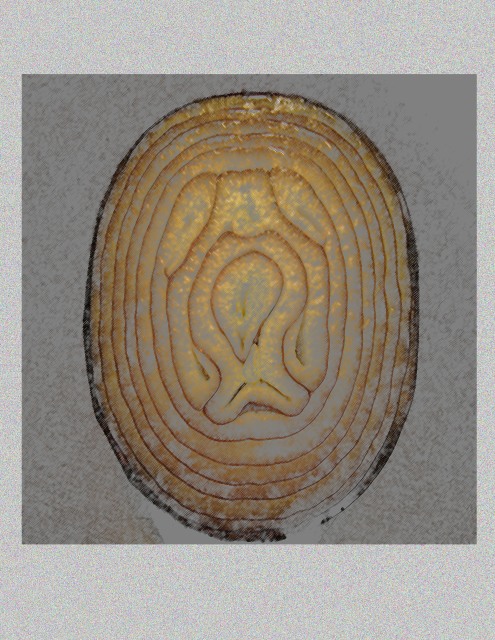
7. Gradually …
… the blanketed nerve networks cannot function. Although Alzheimer’s disease is still incurable, much is known about the way it progresses. The time-line is different for each individual, but for most, the first function to suffer is short-term memory. The brain works overtime, searching for information, but does not find it. Self-awareness is also affected – Alzheimer’s sufferers and their caretakers know this as “Forgetting you do not Remember.”
7.5 Next …
… the ability to find words suffers, and with it, any ease of conversation. Spatial visual function is affected – the ability to read and interpret signs, maps, letters. Executive function, the ability to plan and think logically suffers next. Motor function often remains …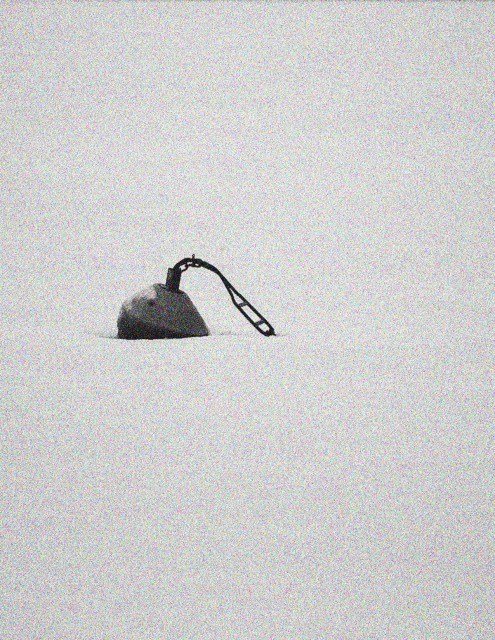 until the last …
until the last …
8. Portraits …
There is some evidence that the creative urge, and an individual’s style, and tastes, are the last to be stripped away by Alzheimer’s disease. fall away. The Abstract Expressionist master Willem de Kooning was diagnosed with Alzheimer’s in the late 70s, but continued to paint, and in the next decade, produced more than 280 luminous paintings. These late paintings, as they are known, are very different looking from the jagged, stormy, scraped style that made de Kooning world famous in the 1950s, and, in the opinion of most art historians, moved the focus of the international art world away from Europe, where it had been for 300 years, to New York. De Kooning did so much muscular scraping on his canvases at that time that he used hollow doors as stretchers for his canvases.


